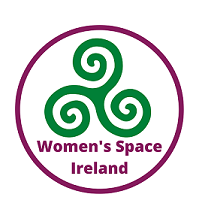by Catherine Monaghan
I am the woman in the home that our Constitution speaks of.
I’ve been a stay-at-home mother for the past 18 years.
I’m also a feminist. I believe that women should have the right to choose how they live their lives, and I wouldn’t support a Constitution that said otherwise.
The work that women do for their families is often unseen and unacknowledged, but it’s critical to a healthy society.
Men and fathers play an equally critical role, but Article 41 is about the provision of care, and research shows that more than 90% of the work of caring is done by women.
I have one son. When he was ten months old and I was due back at work, he was still breastfeeding during the night. That’s normal for a baby of that age, so most women who return to work after the standard maternity leave, whether by choice or necessity, are still tending to babies during the night. It’s exhausting!
A 2017 survey showed that 62% of women, given the option, would choose to stay at home with their children if it was financially possible.
I suspect that until now, many women were unaware that the State had an obligation to support them in this, and I wonder why the NWCI and other feminist organisations weren’t informing them.
I stayed home with my baby and we took a hit financially, but I honestly felt like I was doing the most important work of my life. I still feel like that, and our Constitution says that I was doing work without which the common good cannot be achieved.
Yet everybody around me, even strangers, would ask when was I going back to work?
We are so conditioned these days to believe that working outside the home is the natural and superior choice, that I regularly had to justify my decision to people around me.
We’ve become somewhat detached from our instincts, and from what used to be simple assumptions - like, that the ideal person to care for a child is its parent, that breastfeeding is best, that mothers are different to fathers, that children would be better off in their homes than in daycare or afterschool care.
These have become controversial statements to make, inconvenient truths in a society which values the interests of big corporations, consumerism, and economic productivity over social wellbeing. But, like it or not, they are truths.
So much has changed in the world, but our biology - the fact that women are the ones who have babies and are primed hormonally to nurture them - that hasn’t changed. The basic needs of babies and children have not changed.
A study commissioned by The Department of Children and Youth Affairs in 2017 sought the views of children themselves about childcare. A whopping 99% of children said they wanted to be with family or a childminder after school with the majority specifying that they wanted to be in the care of their parents.
Women and children have specific needs and wishes. It’s not sexist or old-fashioned to acknowledge this and to endeavour to meet those needs.
I don’t want the recognition of women, and mothers, and the home to be removed from the Constitution or replaced with gender-neutral waffle so that we can pretend that the workload is shared equally.
The fact is, in Ireland, as in many other countries, women do the majority of the work in the home. Men weren’t doing an equal share in 1937, when the Constitution was written, and they’re still not.
Article 41 does not say that I have to do this work or that I’m the only person who can do it, although if you listened to various NGOs, politicians, and the media you’d be forgiven for believing that the Constitution has me chained to my kitchen sink. It doesn’t!
As former Supreme Court Judge, Susan Denham, said: “Article 41.2 does not assign women to a domestic role… It recognizes the significant role played by wives and mothers in the home but does not exclude women and mothers from other roles and activities”.
Essentially, as it stands, mothers have a choice, enshrined in the Constitution.
If we need any reassurance of the fact that we have a choice, we can look to Article 45, which states that women and men equally have the right to work to support themselves.
So, why don’t we hold the State to their promise?
It should be possible for every family to choose for a parent to stay home to raise their children if they wish. There is plenty that the State could do in terms of policy, benefits, tax breaks, that would not require changing the Constitution.
Instead, we’re spending millions of euro on this referendum over an amendment, which as far as I can tell will make life better for nobody.
It removes the small nod to the vital contribution that women make to Irish society; in fact, it’s hard not to see some connection with other attempts to remove the words woman and mother from legislation and public health literature.
And it’s not only women and children that the State would like to disregard.
Irish human rights and equality experts have said that this amendment is unlikely to provide any new enforceable rights or services for people with disabilities or their carers. On the contrary, it potentially compromises the rights of people with disabilities.
If the goal was inclusivity, we could have added “other primary care-givers or carers”. That would have respectfully covered mothers, fathers, and other carers too. And it would have kept the State on the hook to support us.
The proposed amendment is not good enough, and it moves us farther away from, rather than closer to, the ideal.


